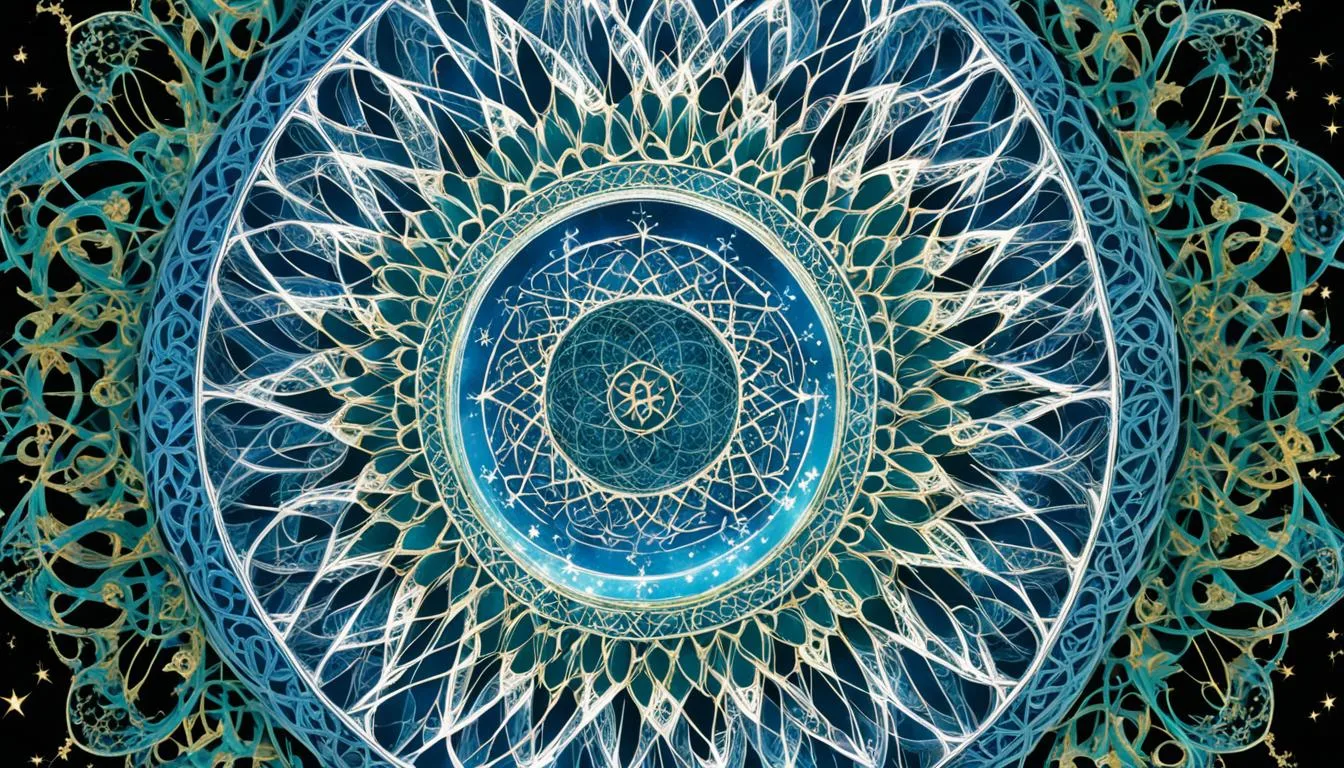Have you ever wondered about the significance of numbers in your life and their connection to the spiritual realm? In Islam, the concept of angel numbers goes beyond mere coincidence, as these numbers are believed to carry profound messages from the angelic realm and the world of jinn. But what exactly are angel numbers, and how do they relate to the Islamic faith?
In this article, we will explore the fascinating world of angel numbers in Islam, uncovering their meaning, and understanding their significance in connecting with the jinn and the angelic realm. Delve into the depths of Islamic cosmology as we unravel the secrets of angelic communication and divine guidance.
The Belief in Angels in Islam
The belief in angels is an integral part of Islamic faith, forming one of its core tenets. For practicing Muslims, this belief is considered essential. The holy book of Islam, the Qur’an, extensively mentions angels, highlighting their significance in the religion.
Angels are heavenly beings created by God, originating from a luminous source. They are viewed as beings of virtue, embodying obedience to God’s commands. Unlike humans, angels lack bodily desires or needs and are considered infallible.
Within Islam, angels play diverse roles. They are tasked with delivering revelations to the prophets, guiding and protecting believers, recording the actions of humans, and conveying glad tidings to the righteous.

Belief in angels is not only central to the Islamic faith but also serves as a source of comfort and guidance for followers. The concept of angels provides believers with a sense of divine presence and protection, knowing that these celestial beings are watching over them.
The belief in angels also emphasizes the magnificence and power of God. Angels act as intermediaries between God and humans, ensuring the communication of messages and serving as guardians. They witness the deeds of individuals, recording them for the Day of Judgment.
In conclusion, the belief in angels is a vital aspect of Islam, firmly rooted in its core tenets. Muslims find solace and inspiration in the idea of angelic beings, recognizing their role as messengers and protectors. The belief in angels strengthens the bond between believers and the divine, shaping their faith and guiding their actions.
The Nature and Characteristics of Angels in Islam
In Islam, angels are believed to be created from light. They are described as immaterial beings, invisible to human senses, but with the ability to manifest in physical forms when necessary. These celestial beings are considered honorable servants of God, unwavering in their obedience to His commands. Unlike humans and jinn, angels do not partake in earthly needs and desires such as eating, drinking, marrying, or procreating. Their nature sets them apart as virtuous and timeless entities.
Angels in Islam have diverse roles and responsibilities. They are entrusted with delivering revelations to the prophets, bearing the weight of the Throne of God, safeguarding and preserving humankind, guiding believers on their spiritual journey, taking the souls of human beings at the time of death, and delivering glad tidings to the righteous. Their functions highlight their pivotal role in maintaining divine order and facilitating the connection between the material world and the heavens above.

The Significance of Angels in Islam
Angels hold a profound significance in Islam, playing a vital role in the beliefs and practices of Muslims. Considered as intermediaries between God and humans, angels serve as messengers and guardians, delivering divine messages and watching over believers with utmost care and guidance. This belief instills a sense of protection and reassurance, as believers know they are constantly under the watchful eyes of these celestial beings.
Angels are regarded as witnesses to the actions and deeds of individuals, meticulously recording every detail for the Day of Judgment. Their presence serves as a reminder of God’s presence and power in the lives of believers. Angels are often depicted as beings of pure light and purity, radiating divine inspiration and serving as a source of emulation for those seeking to lead righteous lives.
With their role as intermediaries and protectors, angels occupy a significant place in Islamic spirituality. They symbolize a direct connection between God and humans, providing believers with a bridge to the divine. The belief in angels reinforces the concept of divine providence and serves as a constant reminder of God’s infinite mercy and love.
The Role of Jinn in Islamic Cosmology
In Islamic cosmology, jinn are another category of beings believed to exist alongside humans and angels. Jinn are creatures created from fire, possessing free will and intellect. They are invisible to human senses but have their own realm of existence. Jinn are mentioned in the Qur’an and believed to interact with humans, influencing their lives. Unlike angels, who are seen as virtuous, jinn can be both good and evil. It is believed that jinn were created before humans and have their own societies and hierarchies, adding complexity to the Islamic cosmological understanding. The belief in jinn emphasizes the existence of an unseen realm beyond the physical world, expanding the concept of Islamic cosmology.
Conclusion
The belief in angels and their significance within Islam provides believers with a profound sense of divine presence, guidance, and protection in their lives. In Islamic belief, angels are celestial beings created by God, serving as messengers, guardians, and recorders of human deeds. They are viewed as honorable servants endowed with virtues and the ability to fulfill various duties assigned by God.
The belief in angels is not only an integral part of the Islamic faith but also emphasizes the connection between the material world and the heavenly realm. Angels serve as intermediaries between God and humanity, delivering messages, and acting as witnesses to human actions. The understanding of angels in Islam emphasizes their role as a source of inspiration, guidance, and a reminder of the presence and power of God in believers’ lives.
As believers engage with angels, it is important to recognize and interpret divine signs and messages sent through these celestial beings. Angel numbers in Islam are significant symbols that hold hidden meanings and are believed to convey divine guidance. By discerning and understanding angel numbers, believers can deepen their spiritual connection, gain insights, and navigate their life’s journey with faith and clarity.




